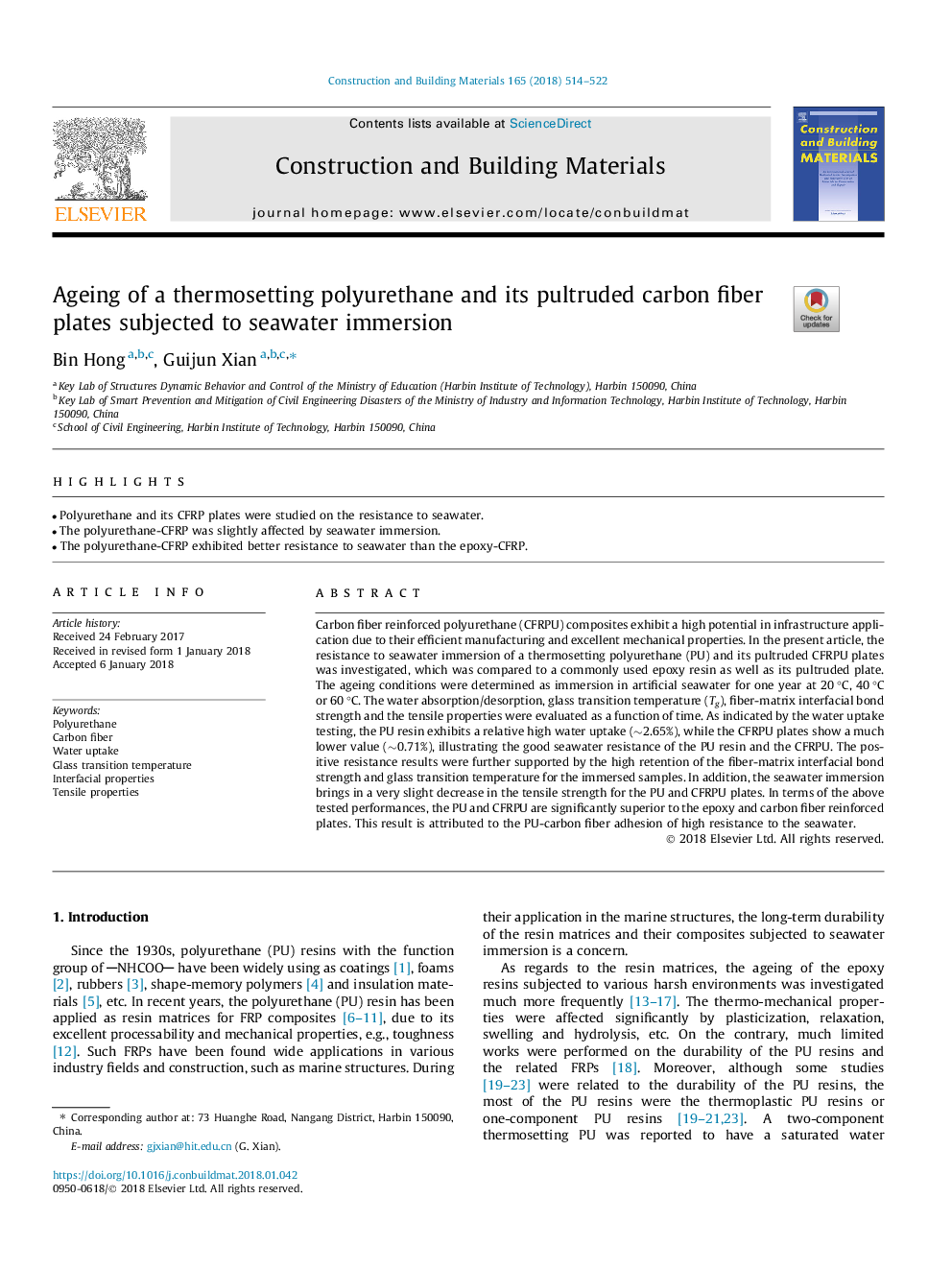| Article ID | Journal | Published Year | Pages | File Type |
|---|---|---|---|---|
| 6715668 | Construction and Building Materials | 2018 | 9 Pages |
Abstract
Carbon fiber reinforced polyurethane (CFRPU) composites exhibit a high potential in infrastructure application due to their efficient manufacturing and excellent mechanical properties. In the present article, the resistance to seawater immersion of a thermosetting polyurethane (PU) and its pultruded CFRPU plates was investigated, which was compared to a commonly used epoxy resin as well as its pultruded plate. The ageing conditions were determined as immersion in artificial seawater for one year at 20â¯Â°C, 40â¯Â°C or 60â¯Â°C. The water absorption/desorption, glass transition temperature (Tg), fiber-matrix interfacial bond strength and the tensile properties were evaluated as a function of time. As indicated by the water uptake testing, the PU resin exhibits a relative high water uptake (â¼2.65%), while the CFRPU plates show a much lower value (â¼0.71%), illustrating the good seawater resistance of the PU resin and the CFRPU. The positive resistance results were further supported by the high retention of the fiber-matrix interfacial bond strength and glass transition temperature for the immersed samples. In addition, the seawater immersion brings in a very slight decrease in the tensile strength for the PU and CFRPU plates. In terms of the above tested performances, the PU and CFRPU are significantly superior to the epoxy and carbon fiber reinforced plates. This result is attributed to the PU-carbon fiber adhesion of high resistance to the seawater.
Keywords
Related Topics
Physical Sciences and Engineering
Engineering
Civil and Structural Engineering
Authors
Bin Hong, Guijun Xian,
